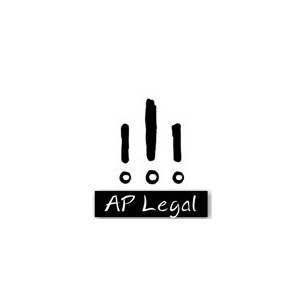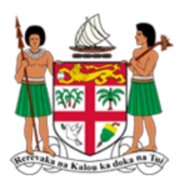Best Energy Regulatory Law Lawyers in Suva
Share your needs with us, get contacted by law firms.
Free. Takes 2 min.
List of the best lawyers in Suva, Fiji
About Energy Regulatory Law in Suva, Fiji
Energy Regulatory Law in Suva, Fiji involves the legal frameworks, governmental policies, and regulations that oversee the production, distribution, and consumption of energy. This field is essential for ensuring the responsible use of energy resources, promoting renewable energy, supervising electricity and fuel tariffs, and protecting consumer interests. In Fiji, the primary focus is on managing the balance between the nation's developmental needs, environmental sustainability, and private sector involvement, especially since the electricity sector is a critical infrastructure serving the capital city of Suva and beyond.
Why You May Need a Lawyer
People and businesses may require legal help with Energy Regulatory Law in Suva for a range of reasons. A few common situations include:
- Resolving disputes with energy suppliers or service providers.
- Applying for licenses to generate, transmit, or distribute electricity.
- Negotiating energy contracts or power purchase agreements.
- Seeking compensation for power outages or damages caused by energy infrastructure.
- Understanding compliance requirements for renewable energy projects.
- Navigating changes in regulatory tariffs, taxes, or consumer rights.
- Responding to environmental compliance investigations related to energy activities.
- Understanding grid connection and development regulations for new projects.
- Dealing with land use or planning issues related to energy projects.
Local Laws Overview
Suva, as Fiji's capital, is subject to national regulatory instruments governing energy, with additional oversight from local authorities. Key legislative frameworks include:
- Electricity Act: This regulates the generation, transmission, and supply of electricity, including licensing requirements and safety standards.
- Fiji Electricity Authority (FEA), now Energy Fiji Limited (EFL): Formerly the statutory body and now the main utility company responsible for electricity supply, grid management, and customer relations.
- Commerce Commission Act: Governs tariff settings, price control, and consumer protection in the energy sector.
- Environmental Management Act: Regulates the environmental aspects of energy projects, requiring environmental impact assessments and approvals, especially for new infrastructure or renewable energy projects.
- Renewable Energy Policy: Promotes the integration and regulation of renewable energy sources within Fiji, directly affecting new business ventures or projects in Suva.
It's important to note that energy projects, especially larger ones, often need approvals from multiple bodies and must adhere to both national guidelines and municipal by-laws in Suva.
Frequently Asked Questions
What is the process for obtaining an energy generation license in Fiji?
Entities wishing to generate electricity must apply through Energy Fiji Limited and comply with requirements set by the relevant ministry. This involves technical documentation, environmental assessments, and sometimes public consultations.
Who regulates electricity prices in Suva?
Electricity tariffs are set and regulated by the Fiji Competition and Consumer Commission under the Commerce Commission Act, after proposals and justifications by EFL.
Can foreign investors participate in Fiji's energy sector?
Yes, foreign investors are encouraged, especially in renewable energy, but must comply with all licensing, environmental, and investment regulations.
What recourse do I have if I experience unfair electricity billing?
Consumers should first contact EFL to resolve disputes. If unresolved, they can escalate issues to the Fiji Competition and Consumer Commission or seek legal advice.
Are there incentives for renewable energy projects in Suva?
The Fijian Government has policies and sometimes offers tax incentives, customs duty waivers, or support for renewable energy projects aimed at reducing the country's reliance on imported fuels.
What are the penalties for non-compliance with energy regulations?
Penalties may include fines, suspension of licenses, or, in severe cases, criminal prosecution. Compliance is monitored by energy and environmental regulators.
How are land disputes for energy projects resolved?
Disputes over land use for energy projects are managed under the Land Transfer Act and may require negotiation, mediation, or legal proceedings, considering indigenous landowner rights.
Do businesses need special permits for backup generators?
Generally, installation of large backup generators or commercial-scale energy systems may require permits from municipal authorities and compliance with environmental and safety standards.
Can small-scale solar systems be connected to the grid?
Yes, subject to technical assessments and approval by EFL. Grid connection for distributed energy resources is regulated to ensure safety and reliability.
How do I appeal a regulatory decision in the energy sector?
Affected parties can seek an internal review with the relevant agency (e.g., EFL or the Fiji Competition and Consumer Commission). Legal challenges may also be brought before the High Court of Fiji, subject to applicable procedures.
Additional Resources
Here are some helpful resources and governmental bodies for anyone seeking legal advice or more information on Energy Regulatory Law in Suva, Fiji:
- Energy Fiji Limited (EFL) - Main utility and regulator for electricity.
- Fiji Competition and Consumer Commission - Regulator for tariffs and consumer issues.
- Ministry of Infrastructure and Meteorological Services - Policy and oversight authority.
- Department of Environment - Environmental approvals for energy projects.
- Investment Fiji - Resource for investors in the energy sector.
- Legal Practitioners in Suva with expertise in energy and infrastructure law.
Next Steps
If you need legal assistance regarding Energy Regulatory Law in Suva, Fiji, consider the following steps:
- Gather all documentation related to your matter, such as contracts, correspondence, and regulatory notices.
- Clearly define your legal issue or question to streamline consultations.
- Contact a qualified legal practitioner in Suva with experience in energy regulatory matters.
- Reach out to relevant regulatory bodies to clarify any administrative requirements or dispute resolution procedures.
- Consider seeking initial advice before making major commitments or decisions in energy projects or disputes.
Navigating the legal landscape of energy regulation can be complex, but professional guidance will help protect your rights, advance your interests, and ensure compliance with local laws and policies.
Lawzana helps you find the best lawyers and law firms in Suva through a curated and pre-screened list of qualified legal professionals. Our platform offers rankings and detailed profiles of attorneys and law firms, allowing you to compare based on practice areas, including Energy Regulatory Law, experience, and client feedback.
Each profile includes a description of the firm's areas of practice, client reviews, team members and partners, year of establishment, spoken languages, office locations, contact information, social media presence, and any published articles or resources. Most firms on our platform speak English and are experienced in both local and international legal matters.
Get a quote from top-rated law firms in Suva, Fiji — quickly, securely, and without unnecessary hassle.
Disclaimer:
The information provided on this page is for general informational purposes only and does not constitute legal advice. While we strive to ensure the accuracy and relevance of the content, legal information may change over time, and interpretations of the law can vary. You should always consult with a qualified legal professional for advice specific to your situation.
We disclaim all liability for actions taken or not taken based on the content of this page. If you believe any information is incorrect or outdated, please contact us, and we will review and update it where appropriate.
















